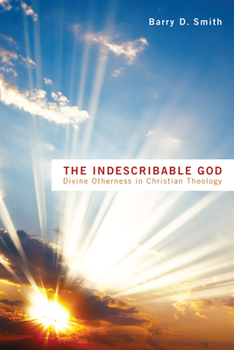The Indescribable God
Select Format
Select Condition 
Book Overview
The God of classical Christian faith is radically transcendent--utterly beyond understanding and words. So if God is to be known it must be in the luminous darkness of unknowing. Drawing on a wide range of primary sources--biblical, patristic, and medieval--Barry D. Smith identifies and explores seven ways of expressing the otherness of God in classical Christian thinking. By allowing historical theologians to speak for themselves, he shows how an aversion to ontotheology long precedes postmodernism. The book first lays out the Old Testament and New Testament foundations for subsequent Christian reflections on divine transcendence. These were the teachings that the early church assumed and, with the assistance of Greek philosophy, further refined with their own set of apophatic conceptual tools. The main focus of the book is a sevenfold exposition of that theological refinement. Smith concludes by looking towards possible future theological developments within this apophatic tradition. Drawing on the theological methodology of historic Christianity, he indicates how a synthesis of the biblical teaching on the otherness of God with philosophical traditions other than those inherited from Greek philosophy is also possible.
Format:Paperback
Language:English
ISBN:1620321041
ISBN13:9781620321041
Release Date:October 2012
Publisher:Pickwick Publications
Length:186 Pages
Weight:0.60 lbs.
Dimensions:0.5" x 6.0" x 8.9"
Customer Reviews
0 rating





